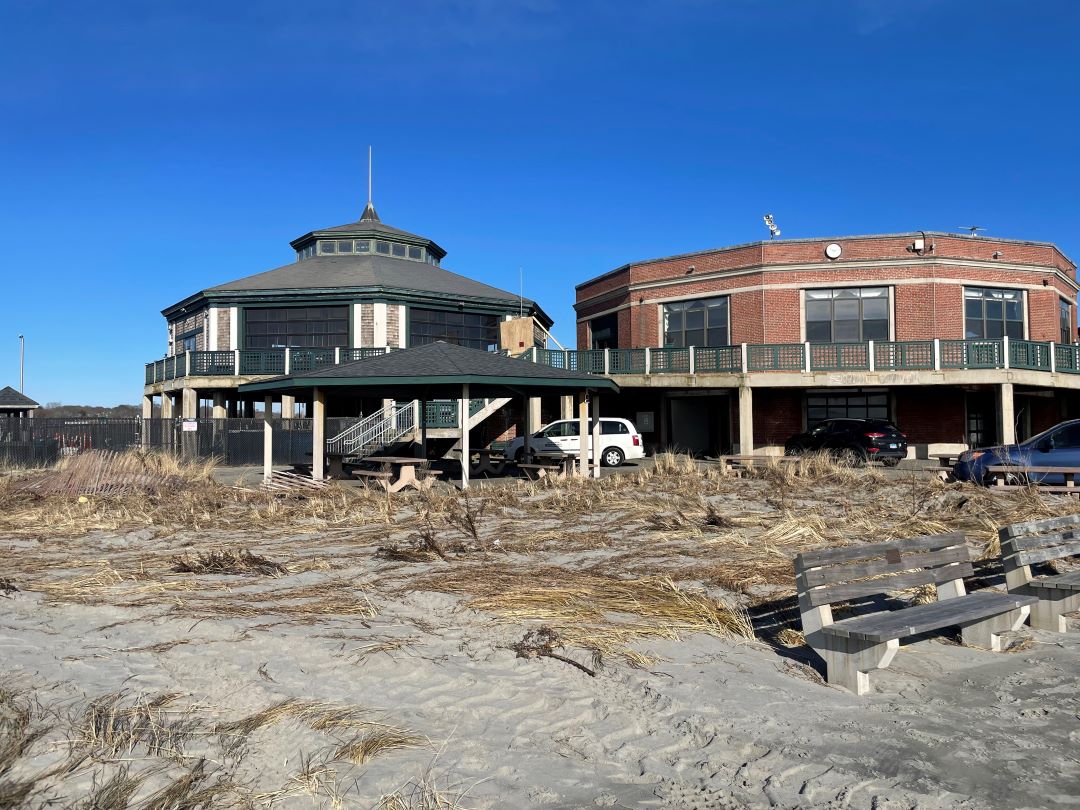When Dealing with Climate Crisis, Forests and Dung Beetles Matter
Biodiversity can play a significant role in mitigating the impacts of a changing climate if we let it
April 10, 2020
As the world grapples with a pandemic, with many parts of it still failing to appreciate the importance of physical distancing, another predicament will be waiting for us when the curve is flattened and life resets with a new normal: the climate crisis.
This global emergency requires a more complex series of actions than simply staying away from each other. The world, however, has been slow to embrace these solutions, even though many of them are obvious. It will need to when the COVID-19 fire is extinguished.
Mitigation efforts begin with turning off the fossil-fuel tap and getting behind the smart development of renewable energy. Another, mostly ignored, part of the equation is respecting and protecting nature and the biodiversity it supports.
Forests and dung beetles matter.
The global pandemic has confirmed the priceless value of open space, from neighborhood woodlands to public parks to protected management areas. For the past month, thousands of people in southern New England have stampeded into such areas, seeking solace from the virus’ tightening grip.
Yet, as David Gregg, executive director of the Rhode Island Natural History Survey, an organization dedicated to understanding the state’s biota, noted these areas are routinely taken for granted or simply ignored.
Two months ago, he said, many of the people now going on nature walks and rushing into natural areas wouldn’t have set foot in these places. He didn’t mean that as an insult or as a negative hot take. The pandemic has forced a frenzied society to slow down. Appreciation for these special places has been renewed.
The importance of nature, however, goes well beyond providing refuge during an historic pandemic. Protecting nature’s biodiversity is critical to human existence, even if the climate crisis wasn’t bearing down on us.
For instance, a natural world teeming with life is much more likely to provide the antiviral that treats an unknown virus unleashed on an unprepared world. As Gregg noted, the probability of finding such an antiviral is much higher in an ecosystem rich in biodiversity, such as a tropical rainforest, than in, say, a meadow.
Unfortunately, humans continue to squeeze the natural world, or as Gregg called the problem, “The unsustainable human use of the globe.”
Humans aren’t giving nature the space it needs and deserves. We’re making it less stable, which, in turn, makes it less productive and us less healthy. It’s too often viewed only through the lens of what it can give us or how it can entertain us.
As ecologist Rick Enser told ecoRI News four years ago, “We’re preserving nature for people — hiking trails, boat ramps. We’re not preserving biodiversity. Building trails and fancy boardwalks look great, but they’re not helping the environment.”
Allowing swaths of the natural world to exist, whether here or in Brazil, benefits us more than we appreciate. Environmental stability, for instance, has allowed Arctic peatlands to store vast amounts of carbon dioxide, even as a warming planet threatens to release it.
But as the man-made climate crisis gains momentum, we refuse to partner with the natural world to slow the worst effects of climate change. For instance, during the past three years, Rhode Island has been bulldozing forestland and open space to erect ground-mounted solar arrays, purportedly in the name of saving the environment.
Despite the ignorant statement uttered by the speaker of the House in January, there are things Rhode Island could be doing to address the climate crisis in a meaningful way, such as directing, with incentives and laws, the development of ground-mounted solar to the state’s plethora of already-mangled space.
Instead, private business interests leveraging the environmental benefits of their products for financial gain are the ones dictating where land-based renewable energy is sited.
One of the best natural defenses to combat the climate crisis is old-growth forest. This ecosystem also happens to be diverse with life.
“Climate change and loss of biodiversity are widely recognized as the foremost environmental challenges of our time,” according to a study authored by southern New England researchers and published last year.
The June 2019 study noted that forests annually sequester large quantities of atmospheric carbon dioxide, and store carbon above and below ground for long periods of time.
“Intact forests — largely free from human intervention except primarily for trails and hazard removals — are the most carbon-dense and biodiverse terrestrial ecosystems, with additional benefits to society and the economy,” the authors wrote.
Rhode Island has a dearth of mature forest. Ecological succession here and most everywhere else is continuously interrupted by human activity.
“Access to nature is important. It leads to appreciation and education,” Gregg said. “But we also need to leave some places alone.”
Enser, who, as coordinator of the Rhode Island Department of Environmental Management’s Natural Heritage Program, spent 28 years documenting the state’s biodiversity, recently told ecoRI News that discussions about natural resources consistently revolve around taking, of oil, coal, natural gas, minerals, forests, and animals.
“It’s always about how can we continue to get what we get. It’s about maintaining the economy of resources,” he said. “It’s never about ecosystem services. We need to be more conscious of what they provide.”
Ecosystem services provide clean air to breathe and water to drink, filter stormwater runoff, protect from storm surge and erosion, and mitigate the impacts of a changing climate, among many other things.
Enser, who moved to Vermont a few years ago, said poor land-use management is fragmenting forests, diminishing biodiversity, and intensifying the impacts of the climate crisis. He said forests are struggling locally, regionally, and globally.
The former South Kingstown resident said environmental protection is far too often more about management for human use than keeping the natural world healthy.
“We need to stop managing natural systems and protect them,” Enser said. “We need to let our forests grow.”
He noted, for instance, that “habitat conservation” is a broad term that is fairly meaningless without answering the question: Habitat for what? For most people, he said, the term elicits a positive feeling, but, he noted, not all conservation is equal.
For example, he said, the creation of shrubland habitat requires the clear-cutting of forest, thus reducing one habitat in favor of another. In this case, reducing a natural ecosystem type, a forest, in favor of an anthropogenic, less diverse one.
Enser said the ongoing practice of wildlife managers, especially at the federal level, to create and foster habitats, such as shrubland, to provide a natural resource — game, such as American woodcock, white-tailed deer, and rabbit — for the public has led and is leading to the loss of biodiversity. Mature forests have ample biodiversity but provide limited habitat for the kinds of wildlife the hunting public demands. In a healthy forest, there isn’t one dominant species, like deer.
“The meadow has more wildlife that is valued by the people creating it, but a forest has more biodiversity,” he said. “The clearing of forests allowed deer to thrive.”
He said decisions about which habitats to conserve or create need to be based on a holistic approach that treats all species and ecosystems equally. Such an approach, he said, should lead to a conservation agenda that focuses on the rarest and most vulnerable, and identifies the places best suited to protect them.
He offered rare plants as a biological group that is often ignored by wildlife managers. Rare birds and plants associated with salt marshes are declining and will likely disappear with rising seas, including the saltmarsh sparrow which is predicted to be extinct within several decades without serious intervention.
As for those undervalued dung beetles mentioned earlier, two species here in Rhode Island are listed as species of greatest conservation need. Why does that matter? Well, according to a 2016 study, dung beetles are some of the most important invertebrate contributors to manure decomposition. They help mitigate greenhouse-gas emissions and aid in carbon sequestration by removing manure deposited on pastures, increasing grass growth and fertilization by doing so.
“We’ve forgotten about the role biodiversity plays in keeping this world healthy,” Enser said. “You seldom hear about it anymore and you don’t read about in most climate reports. It’s a forgotten concept. Biodiversity doesn’t make any money, but it’s what’s going to get us through this.”




Excellent piece. Hits all the important points.
Ecologist Rick Enser is only partly correct when he asserts, “We need to stop managing natural systems and protect them.”
Some biomes, such as forests in nonbrittle (perennially humid) environments, will indeed regenerate without human intervention. Others, however, such as degraded grasslands in brittle (seasonal rainfall) environments, require human intervention, in the form of managed grazing, to regenerate.
This 2-minute video clip shows the effectiveness of Holistic Planned Grazing, a.k.a. Adaptive Multi-paddock Grazing, in healing degraded soil and restoring wildlife habitat in arid, brittle regions.
“To me, Allan [Savory]’s results are spectacular. Despite recent drought, he has transformed this ranch from desert to rich grassland. Today, the grass holds the water, and streams that were dry for decades are flowing again … it could be the best thing, the absolute best thing, conservation has ever discovered.“ – M. Sanjayan, PhD, CEO of Conservation International and former lead scientist of The Nature Conservancy
Conservation biologist M. Sanjayan, PhD, calls Allan Savory’s Holistic Planned Grazing "Spectacular" (2015, 2 mins.)
https://youtu.be/XfPpC258ZwM
The full-length, hour-long Episode 2, "Plains," from the National Geographic documentary series "EARTH A New Wild,” is available at
http://www.pbs.org/earth-a-new-wild/episode-plains/
To follow this topic, join the 17,500+ scientists, farmers, policymakers, journalists, and concerned global citizens of Soil4Climate at facebook.com/groups/Soil4Climate